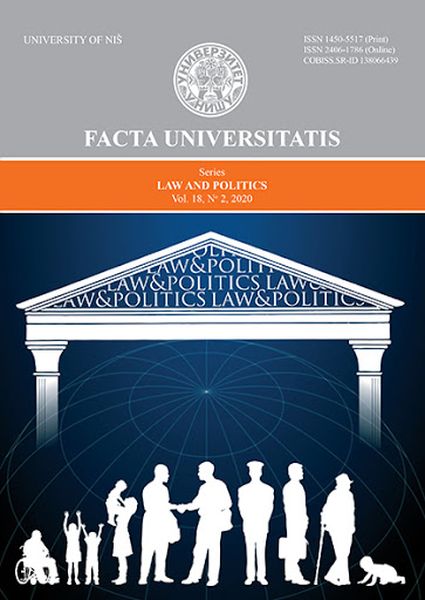BANISHMENT FROM HOME IN SERBAN MEDIEVAL HISTORY
BANISHMENT FROM HOME IN SERBAN MEDIEVAL HISTORY
Author(s): Đorđe ĐekićSubject(s): History, Social Sciences, Law, Constitution, Jurisprudence
Published by: Универзитет у Нишу
Keywords: banishment from home; wife; children; the Kotor Statute; the Budva Statute; the Skadar Statute;
Summary/Abstract: Banishment from home is an old type of punishment, which was mainly used in regulating family relationships. It was first recorded in the Hammurabi’s Code and subsequently envisaged in other legal systems. The first record of this punishment in Serbian legal history dates back to the medieval times, when King Stephen the First-Crowned banished his wife Eudokia for adultery. It was also recorded in the second Charter of Ziča, in Emperor Dušan's Code, in the abridged version of Mateus Blastares' Syntagma Canonum, and in the Code of Justinian, but not always as a form of punishment. It was more frequently envisaged in the medieval statutes of the Adriatic Sea coastal towns of Kotor, Budva and Skadar. Although it served various purposes, banishment was often used as a form of punishment. It was a common form of punishment for widows and widowers who failed to act on a pledge or failed to take proper care of the deceased spouse's property. It was also applicable in cases when parents (usually the father) wanted to punish their children for disobedience or failure to perform the duties they were expected to perform.
Journal: FACTA UNIVERSITATIS - Law and Politics
- Issue Year: 18/2020
- Issue No: 2
- Page Range: 69-80
- Page Count: 12
- Language: English

